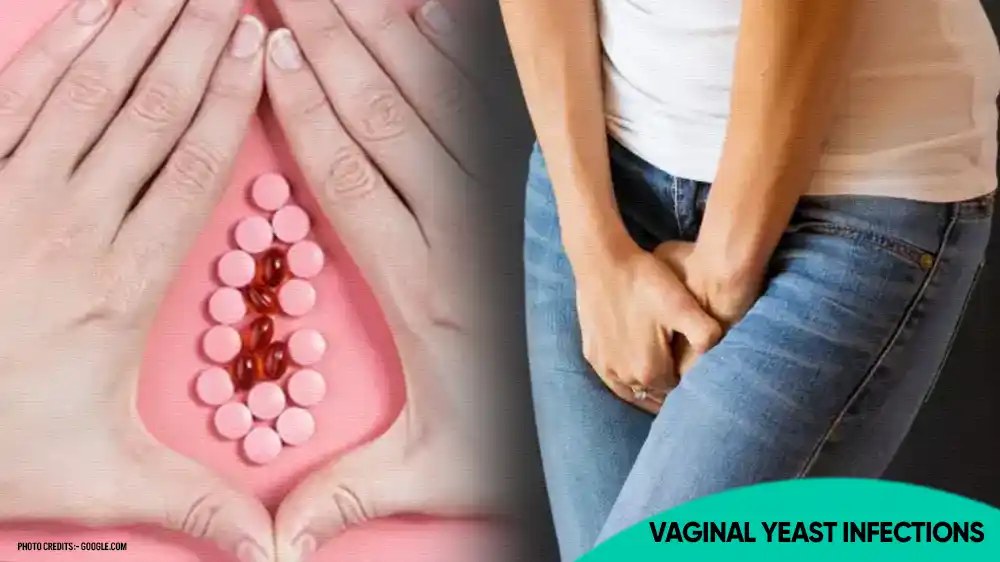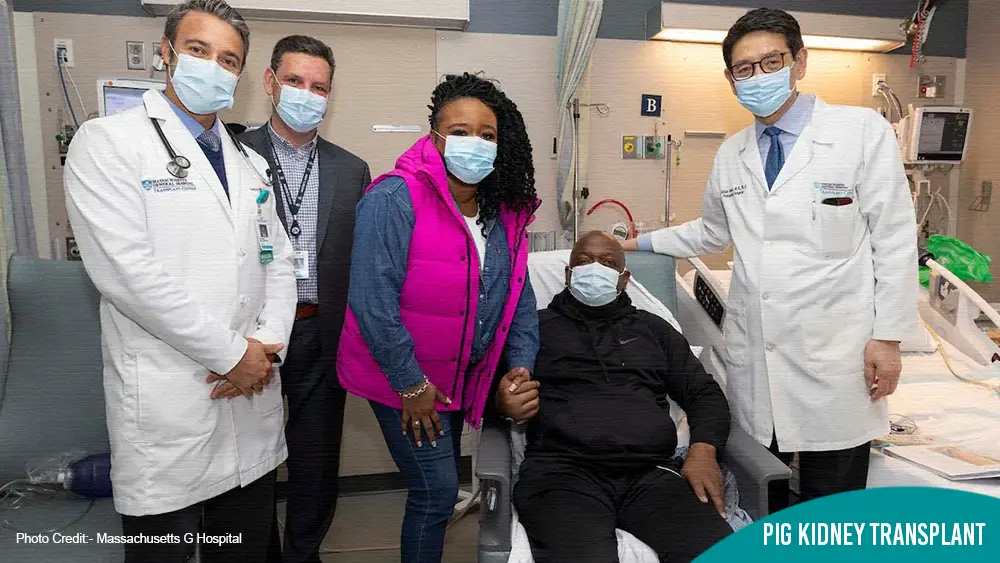
HEALTH NEWS
How is Celine Dion Health now and Does She Have Stiff Person Syndrome?
-
 Rahul Priydarss
Rahul Priydarss - February 20, 2024
Learn about Celine Dion Health, the iconic Canadian singer, songwriter, and actress, whose journey from humble beginnings to global superstardom is marked by talent, perseverance, and dedication. Discover her rise to fame, her personal life, and insights into her health, including her battle with Stiff Person Syndrome (SPS). Explore the causes, symptoms, and treatment options for SPS, a rare neurological disorder that affects muscle stiffness and spasms.
Who is Celine Dion:
– Celine Dion, a Canadian singer, songwriter, and actress, has become one of the most iconic and beloved figures in the music industry. From her humble beginnings in Quebec, Canada, to achieving global superstardom, her journey is one of talent, perseverance, and unwavering dedication to her craft.
– Celine Dion was born on March 30, 1968, in Charlemagne, Québec, a little town 50 kilometers from Montréal. She was the 14th child of Thérèse Tanguay and Adhémar Dion. The Dion family was humble and modest but never lacked love. The house was jam-packed with children, and Celine’s mom even had to lay her littlest one to sleep in a drawer.
– The entire family shared the same passion: music. The parents and children even formed a group that performed concerts in the area. From her earliest childhood, Celine would join in. Thérèse swiftly noted her baby’s remarkable talent. All of her children were gifted, but Celine was exceptionally so.
– At 12, she wrote her first song, with the help of her mother and her brother Jacques: “Ce n’était qu’un rêve.” But it certainly was not just a dream! And thanks to her mother, that dream would become a reality. Thérèse sent a cassette of the song to impresario René Angélil. She chose him because he had managed the career of the family’s idol, Québécois singer Ginette Reno. Reno had just informed Angélil that she would no longer require his services. He was about to realign his career when he heard the cassette that would change his destiny and the destiny of a young girl from Charlemagne.

Table of Contents
The stardom of Celine Dion:
Discovery by René Angélil: Angélil mortgaged his house to finance Dion’s debut album, “La voix du bon Dieu,” which garnered widespread acclaim in French-speaking countries. This success marked the beginning of Dion’s meteoric rise to fame.
International Success: Dion’s crossover into the English-speaking market occurred in the early 1990s with the release of her album “Unison.” Her powerful vocals and emotive performances captivated audiences worldwide, solidifying her status as a global superstar.
Celine Sister Says about Celine Dion health: Claudette, however, sounded a somewhat positive note: “In our dreams and hers, the goal is to return to the stage. In what capacity? I don’t know.”
She continued, “The vocal cords are muscles, and the heart is also a muscle. This is what gets me. Because it’s one out of a million cases, the scientists haven’t done that much research because it hasn’t affected that many people.
Stiff Person Syndrome in Females and Celine Dion Health: Stiff Person Syndrome (SPS) is a rare neurological disorder characterized by muscle stiffness and spasms, which can significantly impact a person’s mobility and quality of life, particularly among women.
Introduction to Stiff Person Syndrome:
Stiff Person Syndrome is a neurological condition that affects the central nervous system, causing severe and involuntary muscle stiffness and spasms. While the exact cause of SPS is still unknown, it is believed to be an autoimmune disorder that affects the body’s ability to regulate muscle tone.
Stiff Person Syndrome Causes:
Stiff Person Syndrome (SPS) is a rare neurological disorder characterized by muscle stiffness and spasms, often leading to significant disability. While the exact cause of SPS remains elusive, several factors have been identified as potential contributors to the development of this condition.
Autoimmune Dysfunction and Stiff Person Syndrome: One of the prevailing theories regarding the etiology of Stiff Person Syndrome involves autoimmune dysfunction. In autoimmune disorders, the body’s immune system mistakenly attacks its tissues and cells. In the case of SPS, the immune system may target components of the nervous system, particularly inhibitory neurons responsible for controlling muscle tone.
Genetic Factors and Their Role: While Stiff Person Syndrome is not considered hereditary, there may be genetic predispositions that increase susceptibility to the disorder. Certain genetic variations or factors related to immune function may influence an individual’s likelihood of developing SPS.
Environmental Triggers and Their Influence: Environmental factors such as infections, physical trauma, or emotional stressors may act as triggers for the onset or exacerbation of Stiff Person Syndrome. These triggers can activate the immune system and precipitate an autoimmune response against the nervous system.
Neurological Abnormalities Associated with SPS: Structural or functional abnormalities in the central nervous system (CNS) may play a role in the development of Stiff Person Syndrome. Disruptions in motor control and coordination within the CNS may contribute to the characteristic muscle stiffness and spasms observed in individuals with SPS.
Neurochemical Imbalances in SPS: Imbalances in neurotransmitters, particularly gamma-aminobutyric acid (GABA), may underlie the pathophysiology of Stiff Person Syndrome. GABA is a neurotransmitter involved in inhibiting neuronal activity, and disruptions in GABAergic signaling may lead to increased muscle rigidity and hyperactivity.
Immune System Dysregulation in SPS: Dysfunction of the immune system, including abnormalities in T-cell function, cytokine signaling, and antibody production, may contribute to the chronic inflammation and tissue damage observed in individuals with SPS. Dysregulation of immune responses may perpetuate the autoimmune process and exacerbate neurological symptoms over time.

Celine Dion Health Revealed:
Celine posted an emotional video to her Instagram, letting followers know that she’d been diagnosed with stiff-person syndrome. In the video, she explains that she’s been dealing with problems with her health for a long time, and it’s been difficult. Unfortunately, these spasms affect every aspect of my daily life, sometimes causing difficulties when I walk and not allowing me to use my vocal cords to sing the way I’m used to.
Stiff Person Syndrome Symptoms:
The symptoms of SPS can vary widely among affected individuals and may fluctuate in severity over time. Common symptoms of Stiff Person Syndrome include:
Muscle Stiffness: Persistent and severe muscle stiffness, particularly in the trunk and limbs, is a hallmark feature of Stiff Person Syndrome. The stiffness may be continuous or episodic, often leading to difficulty in movement and posture adjustments.
Muscle Spasms: Sudden and involuntary muscle spasms, also known as myoclonic jerks, are a characteristic symptom of SPS. These spasms can be triggered by external stimuli, emotional stress, or sudden movements, resulting in abrupt, jerky movements of the affected muscles.
Hyperactivity of Reflexes: Individuals with Stiff Person Syndrome may exhibit exaggerated reflex responses, known as hyperreflexia, in response to stimuli such as tapping on the tendons or striking the muscles with a reflex hammer. This heightened reflex activity contributes to muscle stiffness and rigidity.
Postural Instability: Balance and coordination difficulties are common in individuals with SPS due to continuous muscle stiffness and spasms. Maintaining a stable posture and walking may be challenging, increasing the risk of falls and injuries.
Muscle Weakness: Despite the presence of muscle stiffness and spasms, some individuals with Stiff Person Syndrome may also experience muscle weakness, particularly during periods of prolonged activity or exacerbation of symptoms. Weakness in the affected muscles further impairs mobility and functional abilities.
Pain and Discomfort: Chronic muscle stiffness and spasms can cause persistent pain and discomfort, affecting the quality of life and overall well-being of individuals with SPS. The pain may vary in intensity and may be localized to specific muscle groups or generalized throughout the body.
Anxiety and Emotional Distress: Coping with the physical limitations and unpredictability of symptoms in Stiff Person Syndrome can lead to heightened anxiety, stress, and emotional distress. The psychological impact of living with a chronic and debilitating condition can exacerbate symptoms and affect mental health.
Sleep Disturbances: Muscle stiffness and spasms in Stiff Person Syndrome can interfere with sleep patterns, causing difficulty falling asleep, frequent awakenings, and restless sleep. Sleep disturbances further contribute to fatigue and daytime drowsiness, exacerbating the overall burden of the condition.
Autonomic Dysfunction: Some individuals with Stiff Person Syndrome may experience autonomic dysfunction, resulting in abnormalities in blood pressure regulation, heart rate variability, and gastrointestinal motility. These autonomic symptoms may manifest as dizziness, lightheadedness, and gastrointestinal disturbances.
Functional Impairment: The combination of muscle stiffness, spasms, weakness, and other associated symptoms can significantly impair daily activities, including walking, standing, dressing, and performing routine tasks. Functional impairment may necessitate the use of mobility aids or assistive devices to maintain independence and mobility.
Treatment for Stiff Person Syndrome:
The treatment plan for SPS typically involves a multidisciplinary approach tailored to the individual needs of the patient. Here are some common treatment strategies for Stiff Person Syndrome:
Medications:
Muscle Relaxants: Medications such as benzodiazepines (e.g., diazepam, clonazepam) are often prescribed to alleviate muscle stiffness and spasms in individuals with SPS. These drugs enhance the effects of the inhibitory neurotransmitter gamma-aminobutyric acid (GABA) and promote muscle relaxation.
Immunosuppressants: Drugs that suppress the activity of the immune system, such as corticosteroids (e.g., prednisone) and intravenous immunoglobulin (IVIG), may help reduce autoimmune-mediated inflammation and dampen the immune response in SPS patients.
Anticonvulsants: Certain anticonvulsant medications, such as gabapentin or pregabalin, may be prescribed to manage neuropathic pain and improve muscle control in individuals with SPS.
Botulinum Toxin Injections: In some cases, injections of botulinum toxin (Botox) into affected muscles may provide temporary relief from muscle stiffness and spasms by blocking the release of acetylcholine, a neurotransmitter involved in muscle contraction.
Physical Therapy:
Physical therapy plays a crucial role in the management of SPS by focusing on maintaining or improving range of motion, flexibility, and muscle strength. Therapeutic exercises, stretching techniques, and manual therapy modalities can help reduce muscle stiffness, prevent contractures, and enhance functional mobility.
Psychotherapy and Counseling:
Coping with the challenges of living with a chronic and often disabling condition like SPS can take a toll on mental health. Psychotherapy, counseling, and support groups can provide emotional support, coping strategies, and a sense of community for individuals with SPS and their caregivers.
Assistive Devices:
Assistive devices such as orthotic braces, walking aids, and adaptive equipment can help individuals with SPS maintain independence and perform activities of daily living more easily. Mobility aids, ergonomic tools, and modifications to the home environment may be recommended to improve safety and accessibility.
Intrathecal Baclofen Therapy:
For individuals with severe and refractory symptoms of SPS, intrathecal baclofen therapy may be considered. This involves the implantation of a programmable pump that delivers baclofen directly into the spinal fluid, targeting the muscles affected by spasticity and stiffness.
Experimental Therapies:
Research into novel treatment approaches for SPS, including targeted immunotherapies, gene therapies, and stem cell-based interventions, is ongoing. Participation in clinical trials may offer eligible patients access to promising experimental therapies and contribute to advancing our understanding of SPS.
Symptom Management:
Symptomatic relief measures such as heat therapy, massage, acupuncture, and relaxation techniques may provide additional relief from muscle stiffness, pain, and discomfort associated with SPS.
Impact of SPS on Females and Celine Dion Health:
– While SPS can affect individuals of any gender, research suggests that it may disproportionately impact females. Hormonal fluctuations, genetic predisposition, and differences in immune function may contribute to the increased prevalence of SPS among women.
– She continued, “The vocal cords are muscles, and the heart is also a muscle. This is what gets me. Because it’s one out of a million cases, the scientists haven’t done that much research because it hasn’t affected that many people.
FAQs Stiff Person Syndrome:
A1: While there may be a genetic predisposition to SPS, the exact inheritance pattern is not fully understood, and environmental factors may also play a role in its development.
A2: There is currently no cure for SPS, but treatment options are available to manage symptoms and improve quality of life.
A3: While SPS is considered rare overall, research suggests that it may be more prevalent in females compared to males, though the exact reasons for this are still being studied.
A4: Early signs of SPS may include muscle stiffness, spasms, and rigidity, particularly in the trunk and limbs. These symptoms may worsen over time and can significantly impact mobility and daily activities.
A5: Stiff Person Syndrome can have a profound impact on individuals’ lives, affecting mobility, daily activities, and overall quality of life. Celine Dion’s battle with SPS sheds light on the challenges faced by those living with this rare neurological disorder.

-Please remember, to always consult with healthcare professionals or Doctors for personalized advice related to medical conditions.
Conclusion:
Celine Dion Health is journey from her humble beginnings in Quebec to global superstardom is a testament to her exceptional talent, perseverance, and unwavering dedication to her craft. Despite facing personal challenges and health issues, including her battle with Stiff Person Syndrome (SPS), Dion continues to inspire millions with her music and resilience. Through her iconic voice and enduring legacy, she remains a beloved figure in the music industry, leaving an indelible mark on the hearts of fans worldwide.





Your point of view caught my eye and was very interesting. Thanks. I have a question for you.
Yes ask.